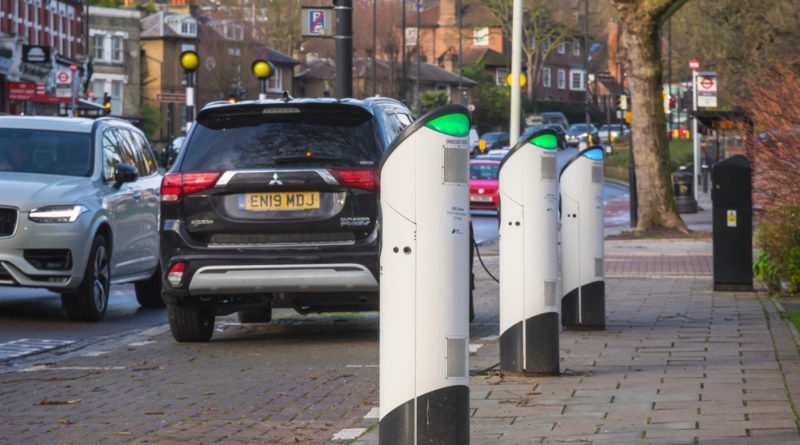As the United Kingdom moves towards a greener future with the adoption of electric vehicles (EVs), the demand for efficient and affordable charging infrastructure is on the rise.
The government-backed Agile Streets project demonstrates the potential of smart charging in the UK, which could revolutionize the way EV drivers charge their cars and save them money. This article explores the benefits of smart charging, the government’s support for innovative projects, and the impact on the UK’s energy grid.
The Agile Streets Project
The Agile Streets project is a £1.5 million government-backed initiative that aims to test the effectiveness of smart charging in the UK. Delivered by a consortium of companies, including Connected Kerb, Samsung Research, Octopus Energy For Business, SMETS Design Limited, Energy Saving Trust, and the Power Networks Distribution Centre, the project focuses on deploying smart charging infrastructure for public EV chargers.
Trial Results
The six-month trial, which involved 100 Connected Kerb on-street EV chargers across 17 sites in four local authorities, saw 2,451 charging sessions, totaling 51,618 kWh of energy. The trial participants, numbering 368, had the option of choosing between a smart charging ‘ECO’ mode at 19p/kWh or a ‘boost’ mode at 33p/kWh. The ECO mode scheduled charging at the lowest-cost times of day, resulting in a 42% saving per session for drivers.
The Benefits of Smart Charging
Smart charging offers several benefits to EV drivers, the energy grid, and the environment. By scheduling charging at off-peak times, smart charging can reduce energy costs for drivers, minimize the impact on the grid, and contribute to the UK’s net-zero carbon goals.
Cost Savings for Drivers
The Agile Streets trial showed that smart charging could save drivers £604.65 per year in charging costs compared to traditional non-smart public charging. This is equivalent to UK-wide collective savings of over £83 million.
Reduced Peak Energy Demand
Smart charging can reduce peak energy demand by as much as 240 MW, equivalent to boiling over 1.4 million kettles. This reduction in peak demand could save the UK around £83 million in lithium-ion battery storage costs, along with an annual operating cost of £1.5 million.
Increased Grid Capacity
By reducing the demand on local grid connection capacity, smart charging enables the installation of more chargers, thus supporting the UK government’s target of 300,000 public EV chargers by 2030.
Government Support for Smart Charging Projects
The UK government is actively supporting the development and deployment of smart charging infrastructure through various funding initiatives. These include the Longer Duration Energy Storage Demonstration competition, which has awarded £69 million to innovative energy storage projects, and the £1 billion Net Zero Innovation Portfolio, which aims to commercialize clean energy technologies in the coming decades.
Longer Duration Energy Storage Demonstration Competition
The £69 million competition is designed to fund projects that develop and demonstrate energy storage technologies with longer durations. The winning projects, which include Synchrostor, Invinity Energy, and Cheesecake Energy Ltd, will receive funding to deploy and demonstrate their technologies.
Net Zero Innovation Portfolio
The £1 billion portfolio aims to accelerate the commercialization of clean energy technologies and processes in the 2020s and 2030s. The funding supports projects in various stages of development, including feasibility studies, prototype demonstrations, and operational environment testing.
Offshore Wind Energy Expansion
The UK government is also investing £95 million in the construction of two new facilities to support an expansion in offshore wind farms. Able Marine Energy Park and Teesworks Offshore Manufacturing Centre will house manufacturers supporting the development of up to 9 GW of offshore wind energy projects annually. This initiative will create around 6,000 jobs in the north of England and generate enough electricity to power 8 million homes.
The Future of Smart Charging in the UK
The success of the Agile Streets project and the government’s commitment to funding innovative projects indicate a bright future for smart charging in the UK. As more households adopt EVs and the demand for charging infrastructure grows, smart charging technology will play a crucial role in managing energy costs, ensuring grid stability, and supporting the transition to a greener future.
Increased Accessibility
Smart charging can make EV charging more accessible and affordable for everyone, including those without off-street parking or a dedicated parking space with a domestic power supply. By enabling drivers to take advantage of off-peak tariffs, smart charging can help maintain the financial benefits of driving an EV.
Grid Stability
As the UK continues to transition towards renewable energy sources, smart charging can help balance the grid by charging EVs during periods of excess energy generation. This will maximize the use of renewable energy while reducing costs for both consumers and the energy grid.
Net Zero Carbon Transition
Smart charging is an essential component of the UK’s net-zero carbon transition. By adopting smart charging technologies and supporting the development of renewable energy sources, the UK can continue to lead the way in the global fight against climate change.






